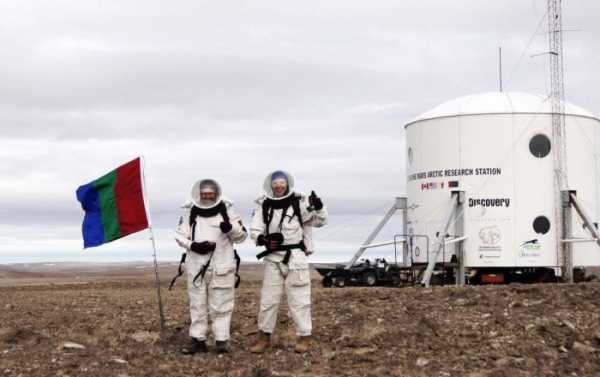
WASHINGTON (Sputnik) – The orders for self-isolation at home due to the pandemic caught many off guard, but Anastasia Stepanova, a participant of space simulation experiments, believes that these requirements are not just feasible – you can even benefit from quarantine.
Over the past weeks, the world has taken unprecedented measures to contain and fight the spread of the coronavirus disease. Borders are being shut, flights cancelled, production suspended and people sent home. In Russia, President Vladimir Putin signed an order designating the week of March 30 a paid holiday to encourage people to stay home and therefore prevent the disease from further spreading.
Stepanova has been a crew member of SIRIUS-19 and Mars 160 — international projects simulating space missions to the Moon and Mars — and through that has had experience with months-long periods of isolation.
After returning to Moscow, it was difficult to get used to “the constant informational noise that pollutes our thinking so much, distracts and interferes with concentration”, she added.
The orders for self-isolation at home due to the pandemic caught many off guard, but Anastasia Stepanova, a participant of space simulation experiments, believes that these requirements are not just feasible – you can even benefit from quarantine.
Participation in International Space Projects
Stepanova, who is a junior research fellow at the Institute of Biomedical Problems of the Russian Academy of Sciences, a space journalist, and a rescue volunteer at the SpasReserv, said that space has been her dream ever since she fell in love with science fiction.
When in 2013 Mars Society announced an open call for volunteers for the international project Mars-160 — initially planned as a year-long mission in an Arctic station, which simulates life on Mars — Stepanova submitted her documents to bring her space dream closer to being realised.
The programme was an imitation of life on Mars, and the participants could only leave the station in spacesuits to conduct microbiological and geological studies, Stepanova recalled.
During the SIRIUS-19 experiment, which simulated a Moon mission, Stepanova studied the psychology and behaviour of a person in a confined space in extreme conditions in the ground-based experimental complex of the Institute of Biomedical Problems of the Russian Academy of Sciences. The project was carried out jointly with NASA.
Isolation in Projects and Today
Stepanova went on to say that after the Mars-160 experiment, it was not at all difficult for her to go through isolation for the next project.
Only by being flexible and adaptable, can one overcome long periods of isolation, she added.
While the isolation during the projects was voluntary, Stepanova went on to say, the participants did not have the comforts of home that people now get during self-quarantine.
Tips to Have Useful Isolation
Stepanova gave some pieces of advice on how to enjoy an isolation period, which is necessary today to contain the spread of the coronavirus and protect the entire world.
Stepanova also stressed the importance of communicating with family and friends.
Also, no matter how boring it is, one also needs to limit aimless internet browsing, she concluded.
Sourse: sputniknews.com
0.00 (0%) 0 votes


































